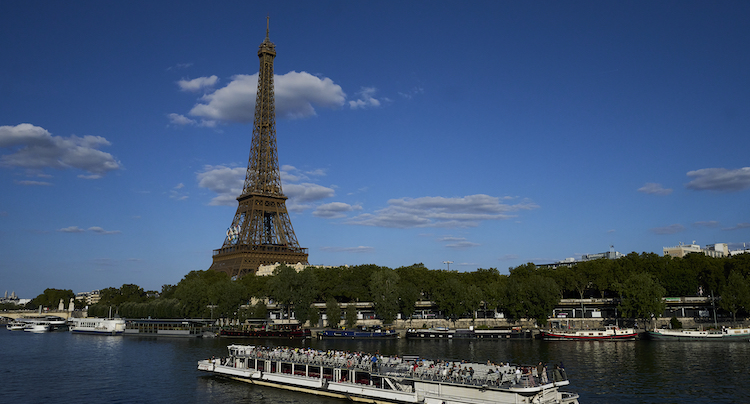The Israeli Foreign Ministry has ordered its diplomats around the world to refrain from participating in public events until further notice, according to a leading Israeli broadcaster. The cautionary note comes after last night’s murder of two Israeli embassy employees in Washington outside the Capital Jewish Museum.
These are, of course, government officials with government-level security. I don’t think most people have the faintest idea of what it’s like for Israelis traveling abroad these days on their own. So here’s a peek at the experience of being an Israeli in the world, via a few stories that demonstrate the point.
Earlier this month, an Israeli tourist attempted to book a hotel stay in the popular Norwegian destination town of Geiranger. The would-be traveler received the following response from the hotel:
“The Norwegian Labor Organization (LO) will soon enforce a boycott that will affect Israeli tourists and Israeli goods due to the catastrophic situation in Gaza. We need to inform you that our staff is organized in LO unions, and they will not break the boycott. I will need to consult with the employers’ organization as I see this as a force majeure situation.”
Force majeure refers to the way unforeseen events can be excluded from normal liability obligations. It seems the hotel could not possibly have expected an Israeli traveler and believes its trade union will be enforcing a boycott against not just Israeli companies and products but people.
Put simply: We don’t serve your kind here.
Of course, sometimes it’s easier to take those discriminatory obligations off the shoulders of your holiday hotels and just ban Israeli passport holders from your entire country. That was the route the Maldives took last month. The Maldives parliament passed a bill to such effect and the president signed it, insisting the ban “reflects the government’s firm stance in response to the continuing atrocities and ongoing acts of genocide committed by Israel against the Palestinian people.”
There were probably fewer Israelis visiting Maldives anyway since the country proposed banning Israelis a year ago, telegraphing its plans well ahead of time. It didn’t inspire much outrage. The Norwegians obviously took notice of that part.
Israelis have a slightly different problem in Japan, which hasn’t (yet) moved to ban them outright. In April, an Israeli tourist checked in to his hotel in Kyoto and showed the front desk his passport. At that point, the attendant handed the Israeli tourist a document to sign asking him to attest to the fact that he is not a war criminal.
When the Israeli ambassador objected, the hotel insisted that the “promise me you’re not an evil warlord” statement also applied to other rogue-ish nations such as Russia and Sudan. But yes, the hotel conceded, because of Israel’s universal conscription—a product of the country being surrounded by enemies constantly trying to destroy it—the form basically applies to everyone from Israel. (It is, for that reason, the only country whose women must also sign the Kyoto hotel’s form.)
“We truly wish for you to understand: staying in the same place as someone who may have committed war crimes causes significant psychological stress for other guests and staff, especially in small hotels like ours where many spaces are shared,” the hotel wrote to the Israeli tourist.
In France, hotel employees don’t even make a show of following some union rule about Jewish travelers. Last year, an Israeli family booked their stay at a Paris hotel online, but when they arrived and showed their passports they were told “Israel, you think you are kings of the world; you will not have a room in this hotel!”
You got that, Israel? You are not kings here at the Novotel Paris Porte de Versailles, oh no.
Online, Israelis have described struggling to rent apartments, too, because often such listings are handled by prospective roommates who are at least as proud as the night manager of the Novotel Paris Porte de Versailles.
Is it so different in America? Alas, in New York City, even the flowers have been made to pledge their undying opposition to the existence of Israel and Israelis.
One recent incident concerns community gardens, which are usually on public land and thus maintained through a partnership between garden groups and the city. Applicants to the Sunset Community Garden in Queens were asked to sign a statement assuring the community group that they were against Zionism. You couldn’t garden at Sunset unless the board was sure you wouldn’t read Jabotinsky essays to the flora when no one was looking.
This is against the law, so the garden was informed by the city that it must lift its litmus test and remedy its other various rules violations or New York will have to find someone else to tend the plants.
And now there is the uptick in America’s participation in the global Jew hunt to worry about.
A world inhospitable to Jews is not a world heading anywhere good, though the people of the Sunset Community Garden and the clerks at the Novotel Paris Porte de Versailles seem to be enjoying themselves just fine.


















